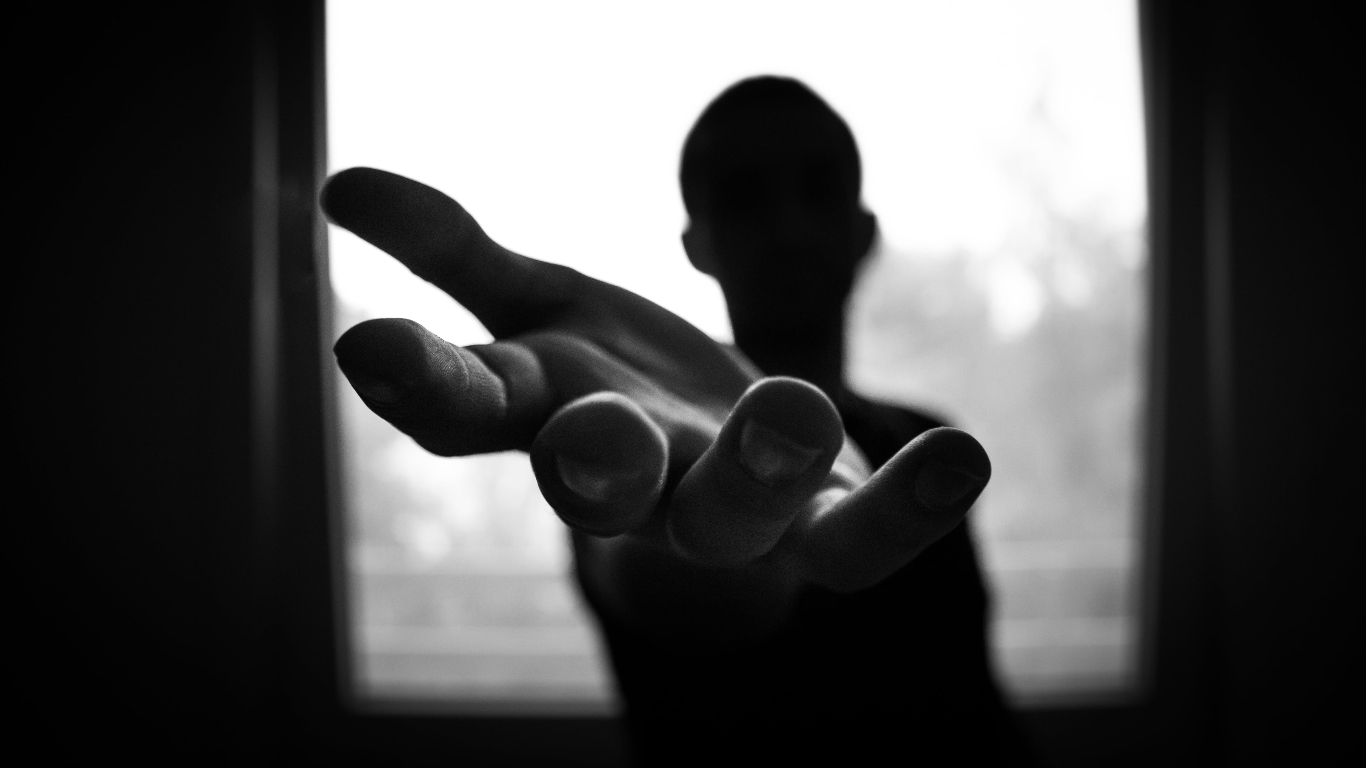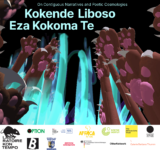“Who is your aunty? Shift from here, let me not slap you!”
Those were the words Maru, the Form Five dormitory prefect, flung at me when I greeted her with Aunty Maru a couple of weeks into my new life as a boarding school student in Bamenda. I’d been sent back to Cameroon for “correction” in August of 2001 and was trying to fit in and be liked by everyone. Therefore, I applied what I had been sternly told to do prior to my repatriation: call all older women ‘aunty’ and all older men ‘uncle’. The lesson was well ingrained in me: one did not have to be related to you to earn those titles. They are signs of respect; it takes a village to raise a child. My anxiety over being the new girl, coupled with a lack of delineation of how old was ‘older’, had me, a twelve-year-old Form Two student, calling a fifteen-year-old student ‘aunty’, to her irritation.
It was there, in boarding school, that I learned that there was no need to call every older person ‘aunty’ or ‘uncle’, that I was expected to be selective. Unfortunately, this lesson was coming more than a year late. I should have learned it in my mother’s house. I should have known, there, that it is necessary to question relationships—what makes one an aunty, a cousin, an uncle, even a mother. But I didn’t, so I called one of my mother’s tenants ‘Uncle Mike’.
*
What I know of Uncle Mike could not fill a foolscap paper. I know how he came to be my mother’s tenant: we had moved into a house in a better part of Maryland, shortly after my brother was born. As a child, I thought it was a come-up for us. In a way, it was. But, more than that, it was a business move for my mother, who is naturally gifted with that renowned Bamileke sense of entrepreneurship. She had decided to take a house on mortgage so she could have a side hustle and spend less on babysitters. She promptly partitioned the lower floor and basement of the house into three rooms for rent and targeted African immigrants who needed cheap housing—people who were still trying to settle in America, who understood the smells of the spices in her kitchen; people who reminded her of home, older people with whom she could leave her kids every so often because they, too, came from a place where one is expected to be their neighbour’s keeper.
*
That was how Uncle Mike came to live in our basement as mum’s tenant. Uncle Mike is from Sierra Leone. He was the oldest of the tenants at the time and lived in the largest of the three rooms. He was probably just over forty years old. I make that guess based on how well he got on with my mum and how she treated him with more respect than the other tenants. She even let him drive her car for errands. I do not know what work he was doing as a new immigrant, I do not know if he had been married back in his country before migrating, I do not even know what his faith was, or if he had kids. I know nothing about him. He, like all other adults his age, were not interesting to me.
Yet, he was not exactly a stranger. I was often sent to the basement by my mom to offer him food she had cooked. He was the one my mom asked to check on me after school and ensure I was doing my homework and not watching TV. And, curious child that I was, I often went downstairs to see how he had transformed the basement into a bachelor pad.
*
That is how ‘The Incident’, as I’ll call it, happened. I was bored and decided to make yet another trip down to the basement, to see what new thing Uncle Mike had added to his space and perhaps steal some of the candy canes he bought in packs, though it was not yet Christmas. I should have left when I noticed his lights were off and only the barely audible TV provided illumination. I saw his figure lying on the sofa he had bought a few months before and assumed he was sleeping, which meant it was the best time to steal some candy canes. However, as I crossed the small space, the sounds from the TV became more audible. Intrigued by the grunts and moans, I stood there, adjacent to the sofa, my gaze fixed to the screen, watching porn for the first time. I don’t know how long I stood there—a minute or two maybe—but I do know that I had not realised that Uncle Mike had not been sleeping until he called my attention away from the foursome happening on the screen. He had his shirt on, but his pants were down. He crooked his finger at me to make me come to him, and I did.
On my knees, by his chair, Uncle Mike took my hand and brought it to his limp penis; he whispered “Shhh” as he controlled my hand so it rubbed him rigid. He used his other hand to grope my breast, which was merely puberty fat at the time. I knelt there, watching his eyes glaze over, hearing him make that hissing sound of someone eating pepper soup, shivering under my touch, until milky liquid shot out of his penis. Later, I would learn that it was my first handjob.
I did know, however, that what I had just done was somehow forbidden; it felt so. Uncle Mike wiped his semen off my hand and gave me a warning: “You this bad girl, your mother must not know about this; she would be ashamed of you.” It wasn’t a terrifying warning. He had said it with a smile, patting my shoulder.
I left the basement without the candy canes, but with a lot on my mind. I had done something obviously significant, but which I couldn’t share with anyone. Uncle Mike would avoid me for the next few days, or, perhaps, I was the one avoiding him. But he still lived in our basement, and I still called him Uncle.
*
Do not think The Incident haunted me in the months and years to come; I had other problems. By the end of that summer, I had engaged in several shouting contests with my mother. I was becoming “too American” for her liking, speaking back at her, rolling my eyes, speaking of abstract emotional things, participating in shoplifting based on dares from school friends…The list was long. One particular shouting match ended with her deciding to send me back to Cameroon for “correction”. That is how I found myself in a boarding school in Bamenda, calling Maru ‘aunty’.
The human mind is a wondrous thing; it buries what it does not want to unpack. So the memory of The Incident was buried for the most part. I had enough on my mind: how to speak Pidgin English fluently so I could fit in better at school; how to survive boarding school, where, unlike day school, you don’t get to go home, when classes end for the day, to escape the bullies.
My mother had sent me to Cameroon to be raised by her friends. I was a child of many homes; not only was I calling people not related to me by blood ‘uncle’ and ‘aunty’, I had also adopted ‘Mummy’, and ‘Papa’, and ‘Grandpa’ for my other carers.
*
It would be years before I thought again of Uncle Mike and The Incident. It had remained buried somewhere in the intentionally closed-off recesses of my mind until my final year of undergrad, when I read Maya Angelou’s I Know Why the Caged Bird Sings and saw myself reflected in her own story and shame-based period of silence. I was twenty-one at the time, a disciple of Nigerian pastor Bimbo Odukoya, striving to be the ideal Proverbs 31 woman; such memories—of Uncle Mike and The Incident—were not helpful. What I had done was shameful, I felt; the shame rooted in both the fact that I now understood what a handjob was, and that I had felt good about that pat on my back and the look of approval Uncle Mike had given me.
I reburied The Incident in the pocket of my mind I only opened on days I needed a weapon with which to self-harm. The Incident belonged to the old me, and Uncle Mike was not a part of the new me. This new me was resident in Buea. The new me had family friends, belonged to groups at church, had three people she called ‘mummy’, two people she called ‘daddy’, and a plethora of ‘uncles’ and ‘aunts’ who were from an eclectic mix of tribes, but were family. I knew Uncle Mike still lived in—or perhaps near—my mother’s place in the US; during one of her phone calls to me, she had mentioned that he was beside her and would like to say ‘hi’. When he came on the line, I greeted him with a “Hi”, then exaggerated my hearing impairment, claimed that the network was bad, and promptly ended the call. I didn’t call him ‘uncle’; I had enough uncles.
*
Many more years would go by before I thought of The Incident’s role in shaping my perception of sex and my own sexuality… Perhaps it was grad school and the fact that I had learned enough, read enough, to take stock of what it meant: an older man had engaged you in sexual activity you did not, could not, consent to. He had left you feeling ashamed yet believing that you were supposed to be proud of having helped him come. I was empowered enough then to tell myself, “You are not to blame, you should not feel ashamed.”
Or it may have been a change that came with age and maturity. I was in my mid-twenties then, intrigued by all things sexual, and finally giving myself permission to ponder on questions like, Just how far is too far? How can I be more appealing in, well, everything, yet not too much? Striving—as society has convinced women is ideal—to strike that balance between sexy vixen and naive virgin.
Perhaps it was the fact that I had finally made a home in Cameroon. I had family, knew what it meant, had begun dreaming of having my own, and could now look at Uncle Mike as that close relation statistics show is most likely to be a perpetrator of sexual assault. More than anything, it would be this: the assurance of my roots would encourage me to branch out wider, dig in deeper, fear less, and, with that validation, have less shame.
*
By the time I returned to the US and my mother’s house, after fifteen years, I had mentally addressed The Incident and Uncle Mike. I had healed, somewhat. Still, when I saw Uncle Mike again, my stomach turned and I feared he would try to embrace me as everyone else had done since my arrival. I stayed at the top of the stairs when he came in; the distance helped me avoid the dreaded close contact. And even when my mother called to me—“See who came to greet you, it’s Uncle Mike”—I pretended to not know who he was, smiled curtly, and said my most noncommittal “Hi”. Uncle Mike no longer stayed with us. He stayed at Bellshire Towers now, not far from our home. I doubt my mother believed my pretence, but then she was too busy making arrangements for the welcome party she had planned for later that day to ask me about it. Desperate to avoid their expectation that I descend the steps to greet Uncle Mike, I did an exaggerated wiggle and said I needed to use the bathroom, addressing them both but not looking directly at Uncle Mike.
That was how I managed to stay away from him that day. I thought he must have gotten the drift as I did not see him again in the days to come. But it seemed it was his working hours keeping him away because, a week into my visit, my younger brother said to me: “Uncle Mike left a message for you. He says I should bring you to his place for a visit Thursday evening when he will be off work.” I nodded my head in acknowledgement of the message but did not respond.
*
When my brother brought the message up again a few days to my departure, I told him I was not interested in seeing Uncle Mike. It should have been a simple thing, declining a visit. But despite how little I knew my brother’s personality, I quickly realised that it was not a simple thing because he was offended on Uncle Mike’s behalf.
“Why do you treat Uncle Mike like that?” he asked.
“Like what?” I stuck to feigning ignorance.
“Like you don’t know him. Now you don’t want to see him. He has called twice to check and is inviting us over. You ought to remember him, and like, even if you don’t, you should have greeted him, you know? He’s a really good person. He picks me up from school sometimes, and comes to my school plays…”
As my brother went on, it was clear that the young man I had been in physical contact with just three times in fifteen years was scolding me, in his own way, over my treatment of his favourite uncle.
I sat there and listened as he praised the man I recognised as a sexual predator. It was Uncle Mike he had saved first on his phone as an emergency contact, because he had proven to be more reliable than both our mother and his biological father. It was Uncle Mike who had pleaded on his behalf multiple times when our mother, typical Cameroonian that she is, threatened to throw him out on the streets for some sort of disobedience. It was Uncle Mike who signed his permission slips for field trips, who attended his sporting events at school, who had driven him to the mall early one morning to stand in line for the latest pair of Air Jordans. In the end, one sentence made his point: “He knows me better than you do.”
The statement hurt because he was right. We were family only by blood, by the commonalities of having the same mother and, to an extent, experiencing life as children of a rather dysfunctional family of Cameroonian immigrants in America. But that was where our likeness ended. Having been raised in Cameroon, I know relatives of ours that my younger brother would never know; I understand my mother’s way of thinking better, knowing where she grew up. My memories of school are unlike his: facing bullies and learning to brown-nose for survival in a Christian mission school in Bamenda is very different from learning to navigate racial profiling and active-shooter drills in America’s public schools. We have learned different things and have different worries.
We are kinfolk but not necessarily kindred, family yet not that familiar with each other. I had not been there when he had to negotiate his identity as a first-generation Cameroonian-American child of a Cameroonian immigrant mum and absentee Nigerian father. I could not know how he had dealt with the pressure of living up to, or failing to live up to, the expectations of that status and the stereotyping that came with it. And all I do not know about him, Uncle Mike does. Just as I had made my own family in Cameroon, so had my brother in someone else; in place of me, he’d had Uncle Mike.
*
In 2018, #WhyIDidNotReport trended on Twitter, a hashtag that came about as a result of Donald Trump tweeting his doubts about Dr Christine Blasey Ford’s accusation of the then prospective SCOTUS, Brett Kavanaugh, for sexual assault. Trump’s tweet suggested that Ford was lying because she had not reported the assault sooner. In response to this, thousands of men and women shared their experience with sexual assault and the varied reasons they had not reported when it happened. Some of their reasons were like mine: I was too young to comprehend what had happened; I had been told not to say anything, otherwise I would be condemned by my mother, or bring her shame; I had blamed myself and thought I was a bad girl…
I thought of adding my voice to the online movement. I wanted to share that there should be no timeline for when one reports. I would have said: Some things we must survive first before we can write of them. But I said nothing because, to be honest, it is no longer healing that keeps me silent. If one asked me #WhyIDidNotReport, why I still will not discuss The Incident with family today, the truth would be that I choose not to. Because that person is family now, even though he was not then. That person has been a father to my brother, who needed a father figure, and has done more for him than I have. Who am I to take one more family member away from him when I cannot be there for him myself?






